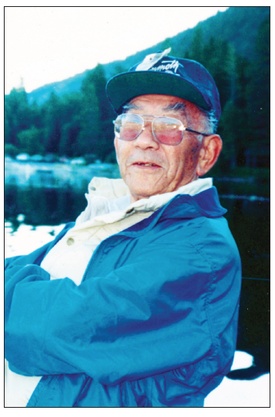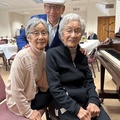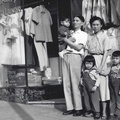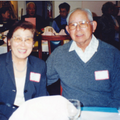Recently the last of the Nisei generation in the Morimizu clan passed away at 95. Kei Morimizu was the younger brother of Hiro. His passing was the catalyst for this story.
It was at this time I had the opportunity to chat with two of Hiro’s children, Danny and Dale. (They are my wife’s cousins and, therefore, her Uncle Hiro). During our visit some of the unique family history came to light. I had never heard or may have forgotten these accounts but they make up another great Nisei story!
When war broke out, Grandpa Morimizu was detained for two weeks by the FBI because he was the head of Japanese organizations in his area. Thus, being the eldest son, Uncle Hiro was left to take care of family affairs as his family was sent to an internment camp. It is hard to imagine being thrust with such a responsibility at age 21, but I guess when you start driving a tractor and truck and smoking at 10, you do grow up more quickly.
Uncle Hiro was allowed to stay to wrap up affairs on the family farm located in Sumner, Washington, east of Tacoma. He harvested and sold the rhubarb crop, the land, farm equipment, and the house. He had $25,000, which he sewed into his jacket that he kept for the duration of the war. (I am guessing he never forgot to wear his jacket.)
He tried to go to Canada to avoid internment but one mile from the border was caught by the FBI. He was taken to Heart Mountain and reunited with the rest of his family. From there he left camp and worked at a logging camp in Wyoming and as a farm worker picking sugar beets.
The interesting part is that his future wife, Florence Abe, my wife’s aunt, was also at Heart Mountain but the two did not meet until after the war through a mutual friend or go-between.
Florence was a member of All People’s Church in South Central Los Angeles, one of the first interracial churches founded by Rev. Dan Genung, who married them. They would have five kids.
After the war, the family returned to Washington to settle some business before migrating to Los Angeles. The reason for the move was that the climate in the Northwest was too damp for his mother.
In Los Angeles that $25,000 in Uncle Hiro’s jacket allowed the family to buy a plot of land with the help a Caucasian friend. They bought three lots with a great view of Los Angeles. They ordered a house kit and, with a friend, Bob Rosales, Uncle Hiro built the family house in City Terrace in East L.A. It still stands today.
Uncle Hiro started a nursery business in Lakewood in the late 1940s. He sold it in the early ’50s and started working for the City of Los Angeles in landscape maintenance. He started in the street and tree division as a regular gardener and retired as median parkways supervisor.
Like many JAs, he loved Mammoth and fishing. When I married into the clan, Uncle Hiro took me to Mammoth on my first fishing trip. Mammoth continues to be my favorite annual vacation. He loved to drive and would drink endless cups of coffee on long trips.
One of the highlights of his life was taking the family on a trip across the United States. Five kids and two adults in a station wagon must have been quite an adventure.
Uncle Hiro was a man of many talents. He was a skilled as a handyman and was very patient explaining how to fix something. He had a talent for drawing. Son Alan related to me recently that for birthdays Hiro would draw a treasure map that would lead them to their presents.
He could be stern like many fathers of his generation, but he was the consummate family man who always put his family first and took good care of his siblings and parents.
Every family has a unique story that needs to be shared and passed on to the next generation. The Nisei generation is definitely near the sunset of their time. Uncle Hiro’s story is about “gaman,” enduring in adversity. And to quote Paul Harvey, “Now you know the rest of the story!”
* This article was originally published in The Rafu Shimpo on November 14, 2019.
© 2019 Bill Yee






